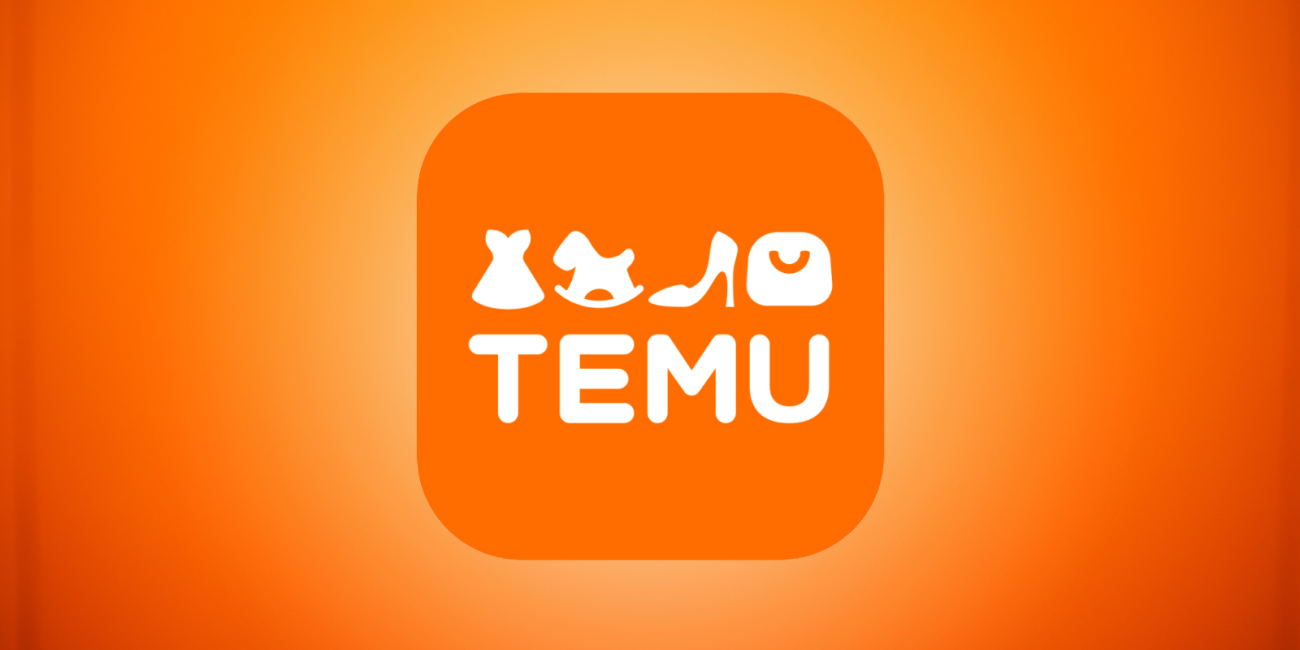
Have you ever wanted an apron that catches beard hair? Or dreamt of some miniature cleaning products? How about a ladle in the shape of the Loch Ness monster? Look no further than Temu: a Chinese-owned shopping app that has captivated young Americans.
Launched in September 2022, Temu has quickly become a market leader in fast fashion, selling anything from high-end clothing duplicates to smartwatches and pet supplies. Binding these together is an outlandishly cheap price tag – a four-piece outdoor furniture set costs just £21.33.
It has already exceeded the sales of rival Shein and is now the most downloaded new, free app in America.
Temu’s popularity largely revolves around the materialism levels typically associated with the super-rich. Its catchy slogan, ‘Shop Like A Billionaire,’ highlights a new era of consumerism where everyday people can not only buy the things they need, but also the things they want.
Rising inflation worldwide means young people are falling victim to the temptation of Temu’s low prices. It’s easy to justify fast fashion when it’s masked under a facade of ‘self-care’ and ‘mental wellbeing’. After all, what’s wrong with the odd cheap purchase if it cheers you up or makes your life a little bit easier?
But Temu and similar apps are shrouded with controversy. Many fast fashion brands (Temu included) are accused of selling products made in China’s western province of Xinjiang – a region with links to forced labour. The same brands are also known for stealing the work of artists and fashion designers to make cheaper versions of their creations.
Feeling indifferent often coincides with distant adversity: if it’s not affecting you, it’s easier to brush it aside. But while the mind-bogglingly low prices may overshadow Temu’s poor practices, there is another cost to using the app: data.
Temu is reportedly losing $30 per order as it attempts to break into the American market, which equates to a loss of $588 million to $954 million each year. The company is renowned for spending obscene amounts of money on marketing, including a $14 million Super Bowl ad, which featured a young woman trying on an endless torrent of clothes. The Temu app is filled with enticing (and often misleading) promotions and offers, including free gifts for referring a friend and a $7 Nintendo Switch for signing up.
This unsustainable business model has caught the eye of critics, who are rightfully questioning where Temu gets the money to operate. A paper from Grizzly Research suggested that Temu “has the full array of characteristics of the most aggressive forms of malware/spyware” with “hidden functions that allow for extensive data exfiltration unbeknown to users”. The paper suggested that Temu developers made a considerable effort to hide the malware – illegally stealing data that will likely sell to sustain the company’s unsound business model.
Temu’s alleged practices aren’t surprising when you look at its sister company, Pinduoduo, another popular online retailer primarily operating in China. Researchers identified malware on Pinduoduo that bypassed users’ mobile devices to spy on their activity – including monitoring behaviour on other apps and reading private messages. Only days before, Pinduoduo was banned by Google following ‘security concerns’.
While Temu and Pinduoduo are undoubtedly alarming in their own right, they raise a wider question of digital surveillance from the East. TikTok and Lemon8 – two Chinese-owned social media apps – are under the watchful eye of critics following concern that their parent company, Bytedance, is selling data to the Chinese state. Elsewhere, Chinese-made security systems are being removed from sensitive government sites.
But while tensions between the West and China have caused a general distrust among European and American governments, this isn’t necessarily rubbing off on young people – the most avid users of Chinese-owned apps. And while some VoiceBox contributors believe young people should be worried about data privacy, low prices and scarily accurate algorithms are attracting a generation raised on convenience, creating an almost disinterested attitude for some towards the companies accused of data corruption.
“I think we need to be careful. Currently, it’s possible to maintain a decent level of privacy online, but that could change at any moment.” – VoiceBox contributor.
“Our digital privacy needs to be enshrined in law, and that will require constant vigilance and constant protest.” – VoiceBox contributor.
“Am I the only one who doesn’t care if China collects my data?” – young person (The Guardian).
“Let [the Chinese government] have my data. They know me better than I know myself.” – young person (The Guardian).
Taking such a casual approach is understandable. After all, what does it matter if a government knows you like to play online games or shop for room decorations? To understand the seriousness of malware, we need to look at the bigger picture: very powerful people using civilians as pawns in a fight for dominance. And if young people make up the largest user base of Chinese-owned apps, they are also the most vulnerable to data theft and exploitation.
While Temu is yet to be indicted for (potentially) incorporating malware into its app, the dodgy reputation of its parent company PDD Holdings, and the misdeeds of its sister company, Pinduouo, means Temu isn’t yet in the clear. We would ask any young person to think twice before using it.
“Anyone looking to purchase on the cheap should consider reputable second-hand stores. Risking personal data for a 58p butterfly bracelet is simply not worth it.” – VoiceBox contributor.
Support Young Creators Like This One!
VoiceBox is a platform built to help young creators thrive. We believe that sharing thoughtful, high-quality content deserves pay even if your audience isn’t 100,000 strong.
But here's the thing: while you enjoy free content, our young contributors from all over the world are fairly compensated for their work. To keep this up, we need your help.
Will you join our community of supporters?
Your donation, no matter the size, makes a real difference. It allows us to:
- Compensate young creators for their work
- Maintain a safe, ad-free environment
- Continue providing high-quality, free content, including research reports and insights into youth issues
- Highlight youth voices and unique perspectives from cultures around the world
Your generosity fuels our mission! By supporting VoiceBox, you are directly supporting young people and showing that you value what they have to say.





